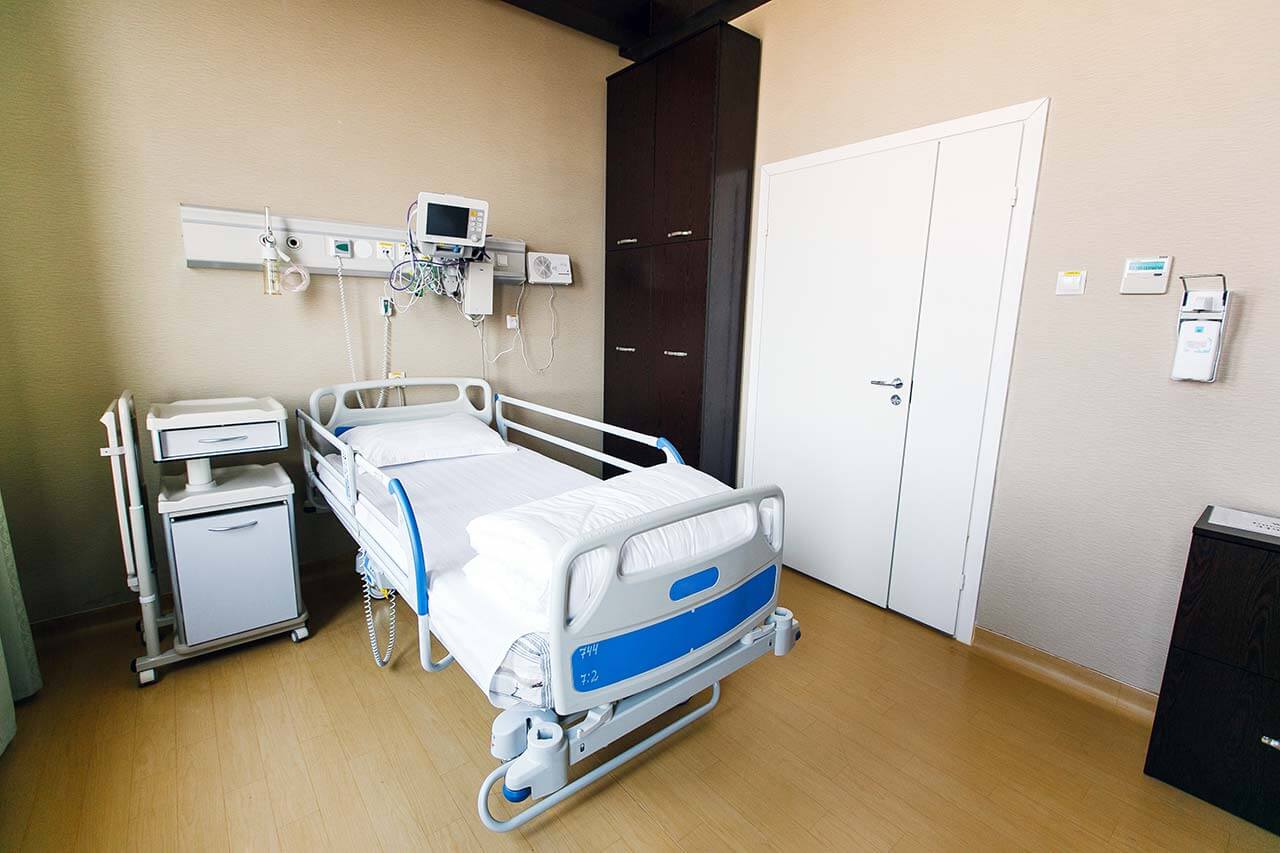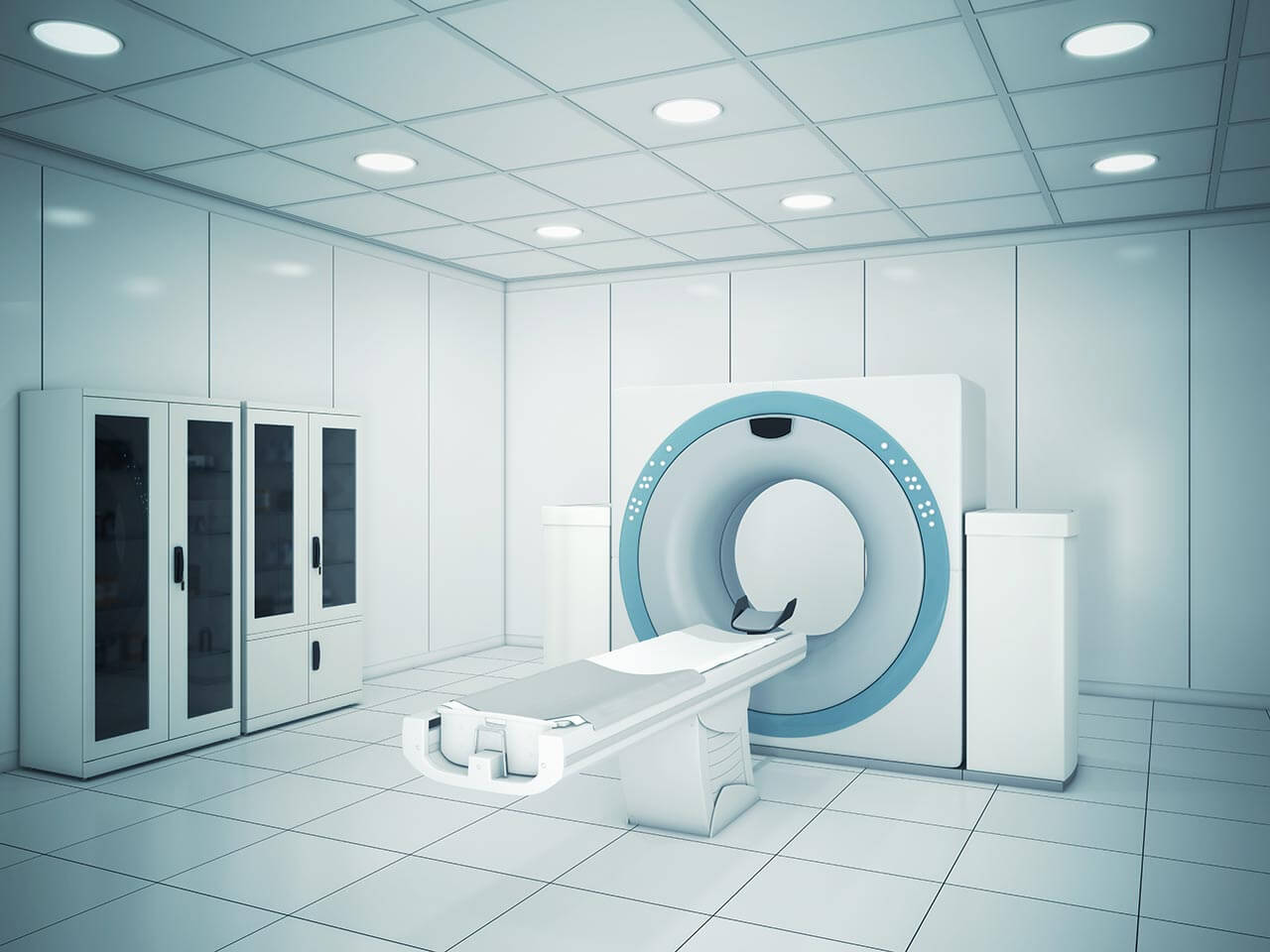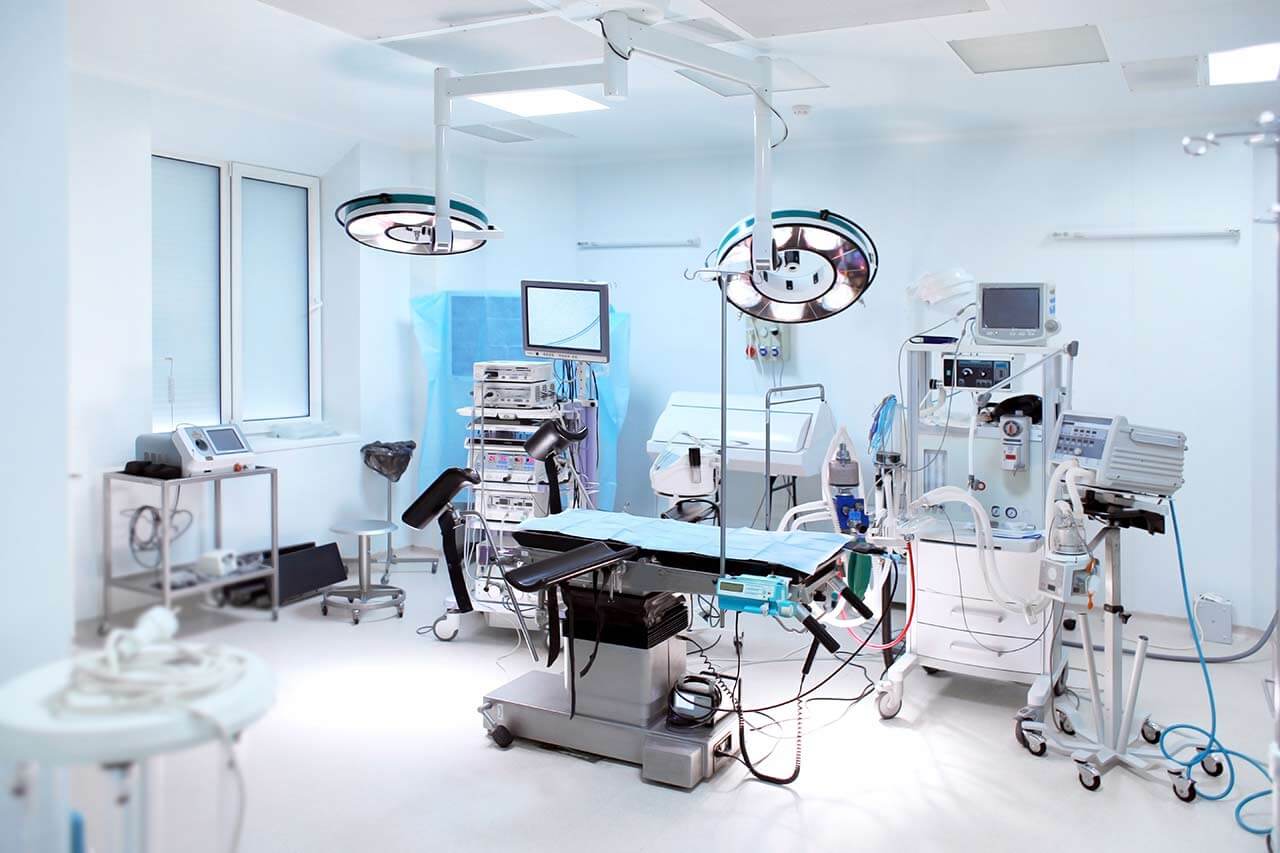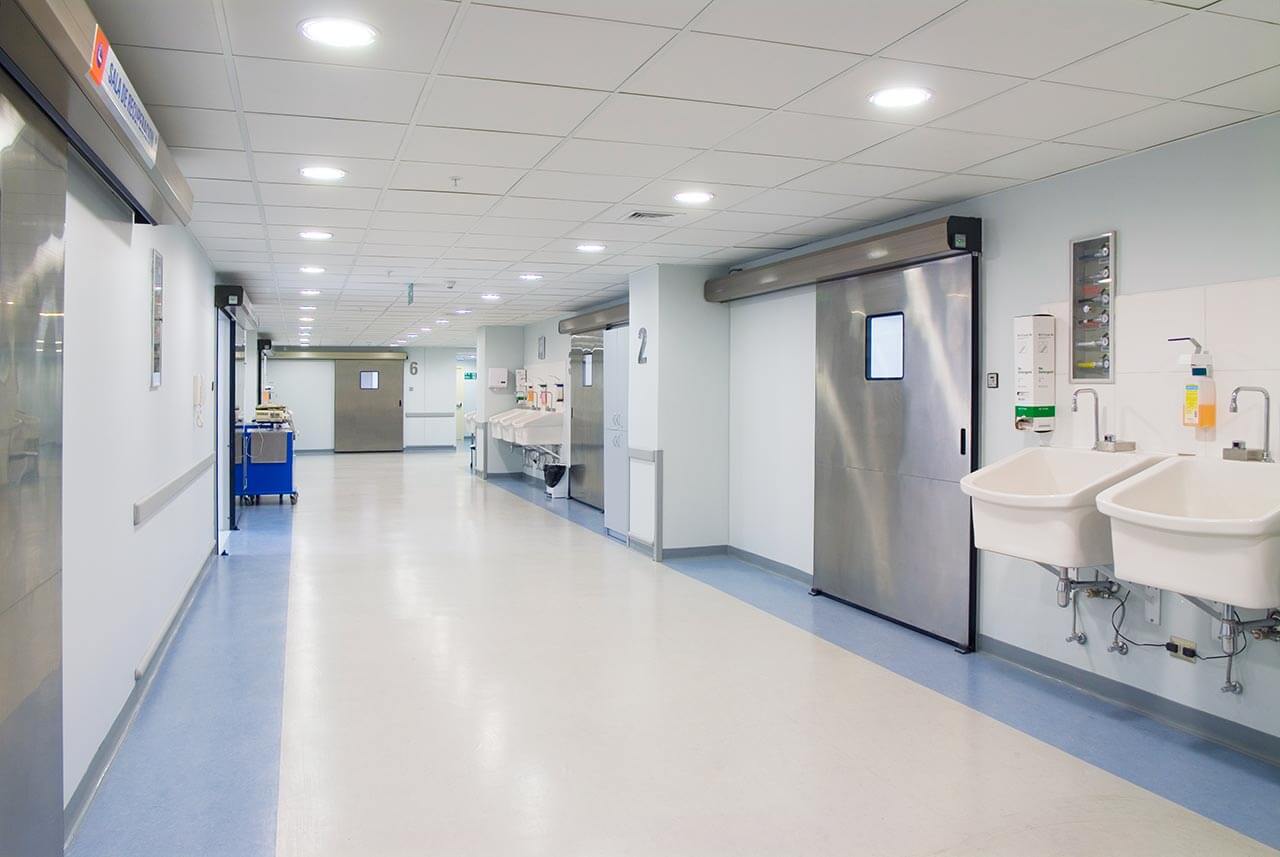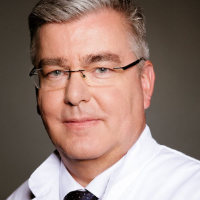
The program includes:
- Initial presentation in the clinic
- clinical history taking
- review of medical records
- physical examination
- laboratory tests:
- complete blood count
- general urine analysis
- biochemical analysis of blood
- inflammation indicators (CRP, ESR)
- indicators of blood coagulation
- tumor markers (CEA, CA19-9, CA125)
- CT planning of radiation therapy
- full course of conventional radiation therapy or brachytherapy
- chemotherapy (6 cycles), the cost of medicines is included
- symptomatic treatment
- cost of essential medicines and materials
- nursing services
- control examinations
- consultations of related specialists
How program is carried out
During the first visit, the doctor will conduct a clinical examination and go through the results of previous laboratory tests and instrumental examinations. After that, you will undergo an additional examination, including complete blood count, laboratory assessment of liver and kidney function. Based on the received results, the physician will elaborate the chemotherapy regimen, conduct radiotherapy planning with the help of CT or MRI, make the permanent tattoo marks on the skin and conduct CT simulation in order to assess the accuracy of the rays and the radiation dose. If necessary, related medical specialists will be involved in the elaboration of a treatment regimen (tumor board).
Chemotherapy and radiation therapy are carried out as the day hospital procedure, without mandatory admission to the hospital. At each visit, the physician will assess your general condition and the marks on the skin. After that, you will be placed in a shielded radiation therapy room, on a special table.
Each radiation therapy session lasts less than half an hour (including preparation). All this time, doctors and nurses are monitoring your condition, you can communicate with them through a loudspeaker. The procedure is completely painless. Depending on the planned course of treatment, you will visit the hospital from 1 to 3-5 times a week.
During the chemotherapy session, after the placement of a venous catheter, you will stay in a comfortable ward. An infusion system will be connected to the catheter, through which the required drug or a drug combination will be administered. All drugs are administered by intravenous drip, slowly, so the total duration of the infusion can be up to several hours. All this time, doctors and nurses will monitor your health condition closely.
After the completion of the chemotherapy and radiation therapy course, you will undergo control examinations aimed at assessing your condition and efficacy of treatment. After that you will receive the medical report with detailed recommendations regarding further follow-up and treatment. In the future, you will be able to have a distant consultation with your attending physician and schedule the next course of treatment, if necessary.
Required documents
- Medical records
- MRI/CT scan (not older than 3 months)
- Biopsy results (if available)
Service
You may also book:
 BookingHealth Price from:
BookingHealth Price from:
About the department
The Department of Oncology, Hematology, Gastroenterology and Hepatology at the Alfried Krupp Hospital in Essen-Ruettenscheid provides the full range of medical services in the areas of its specialization. Patients receive both inpatient and outpatient treatment – the choice of the therapy regimen depends on the severity of the clinical case. The team of oncologists and hematologists cooperate closely with the Department of Radiation Therapy. The two departments jointly form an interdisciplinary Cancer Center with over 50 beds for inpatients. In addition, the specialists in the field of oncology fruitfully cooperate with the Bowel Cancer Center and the Breast Center certified by the German Cancer Society. Gastroenterology and hepatology are focused on medical care for patients with diseases of the upper and lower gastrointestinal tract, liver, gallbladder, bile ducts and pancreas. In addition to classical endoscopic and functional diagnostics, the department performs interventional endoscopic procedures, including for the treatment of early stages of gastrointestinal cancer. The department's medical team pays special attention to the individual needs and wishes of each patient, which has a beneficial effect on the successful treatment outcome. The department is headed by Prof. Dr. med. Burkhard Hennemann.
The department has an outpatient clinic where patients can undergo ultrasound and endoscopic examinations, as well as laboratory tests. In addition, the range of outpatient services includes chemotherapy, antibody therapy, other types of infusion therapy and blood transfusion. However, outpatient treatment is not suitable for all patients, and therefore the specialists of the medical facility often carry out inpatient treatment under close medical supervision. As a rule, hospitalization is required for complex diagnostic procedures and treatment that combines several methods. For example, chemoradiation therapy is performed only on an inpatient basis.
When cancer is detected, the department's specialists consider the clinical case at the tumor board, together with radiation therapists. The attending physician necessarily informs the patient about all possible treatment options, and they jointly select the most preferred methods. All diagnostic and therapeutic measures comply with modern clinical protocols and recommendations of the professional societies. If a bone marrow transplant is required, external partners specializing in this type of therapy are involved. The treatment of malignant hematopoietic diseases, such as leukemia, lymphoma, myeloma and myelodysplastic syndrome, is of particular interest to the team of hematologists. Oncologists demonstrate excellent treatment success rates in patients with gastrointestinal, lung and breast malignancies. The department also specializes in palliative care for patients with advanced cancer.
The service range of the medical facility is complemented by the diagnostics and treatment of pathologies of the gastrointestinal tract, liver, gallbladder, biliary tract and pancreas. The department has a progressive Endoscopy Unit where patients can undergo diagnostic examinations and interventional endoscopic procedures, including endoscopic mucosal resection and endoscopic submucosal dissection in early stages of gastrointestinal cancer. The treatment of chronic inflammatory bowel disease (Crohn's disease and ulcerative colitis), fecal incontinence, swallowing disorders and acute gastrointestinal bleeding is also the department's priority focus. The department is part of the specialized Pancreatic Center, and therefore it cooperates with abdominal surgeons and oncologists for effective treatment of pancreatic tumors, cysts and pseudocysts, acute and chronic pancreatitis, including especially severe types of chronic pancreatitis accompanied by the formation of cysts in the pancreas.
The department's main clinical focuses include:
- Oncology and hematology
- Diagnostics
- Laboratory tests
- Functional tests
- Imaging tests (in collaboration with the Department of Radiology)
- Therapy
- Chemotherapy
- Antibody therapy
- Multimodal therapy combining chemotherapy, radiation therapy and surgery (in collaboration with specialized doctors)
- Infusion therapy
- Blood transfusion
- Diagnostics
- Gastroenterology and hepatology
- Diagnostics
- Endoscopic diagnostics
- Gastroscopy and colonoscopy, including endoscopic mucosal resection and endoscopic submucosal dissection, polypectomy with chromoendoscopy and zoom endoscopy
- Proctoscopy
- Capsule endoscopy and double balloon enteroscopy for examination of the small intestine
- Endoscopic retrograde cholangiopancreatography, percutaneous transhepatic biliary drainage, cholangioscopy
- Endosonography, including bile duct ultrasound scanning and endosonography-guided puncture
- Functional diagnostics
- 24-hour pH monitoring and esophageal manometry (high resolution)
- Functional diagnostics for constipation and fecal incontinence: manometry, endosonography, defecography
- Hydrogen breath test with lactose, fructose and glucose
- Endoscopic diagnostics
- Therapy
- Pharmacotherapy
- Interventional endoscopic procedures
- Feeding tube placement
- Percutaneous endoscopic gastrostomy
- Interventional procedures in the bile ducts: papillotomy, lithotripsy, cholangioscopy, stenting for eliminating bile duct stenosis and obstruction
- Interventional procedures in the pancreas: pancreatic duct stenting, removal of stones from the pancreatic duct, drainage of pancreatic pseudocysts
- Endoscopic mucosal resection and endoscopic submucosal dissection for the treatment of initial stages of cancer
- Palliative endoscopic procedures for advanced cancer (balloon dilatation, stent implantation)
- Radiofrequency ablation
- Interventional endoscopic procedures for cessation of acute intragastric bleeding: clipping, argon plasma coagulation, sclerotherapy, varicose vein ligation, interventional therapy for small bowel bleeding using double balloon enteroscopy
- Interventional endoscopic procedures for the treatment of esophageal motility disorders
- Diagnostics
- Other diagnostic and therapeutic options
Curriculum vitae
Prof. Dr. med. Burkhard Hennemann holds the position of the Head of the Department of Oncology, Hematology, Gastroenterology and Hepatology at the Alfried Krupp Hospital in Essen-Ruettenscheid. Before joining the Alfried Krupp Hospital in Essen-Ruettenscheid, he was the Chief Physician of the Department of Oncology and Hematology at the Johanniter Hospital Duisburg-Rheinhausen.
Dr. Hennemann had his board certifications in oncology and hematology, as well as received additional qualifications in palliative medicine, hemostaseology and transfusion medicine. The specialist has over 25 years of successful clinical experience in the treatment of oncological and hematological diseases.
Photo of the doctor: (c) Alfried Krupp Krankenhaus
About hospital
The Alfried Krupp Hospital in Essen-Ruettenscheid began its work back in 1870, and large-scale restoration took place here in 1980. The medical facility is an academic hospital of the University of Duisburg-Essen, thanks to which it has access to innovations in the medical field, and also makes its own contribution to the development of modern therapeutic techniques. The hospital has 13 departments and various highly specialized centers, including the Breast Center, Endoprosthetics Center, Lung Cancer Center, Trauma Center and others. The hospital has 575 beds for patient hospitalization. The hospital also offers outpatient medical care. Every year, the hospital's team of doctors admits over 80,000 patients for diagnostics and treatment. For many years, the medical facility has held a leading position in the German medical arena, and is also widely known for its high quality standards in many other countries of the world. The hospital can be proud of its successful experience in providing medical care to foreign patients.
The priority fields of the hospital's work include the treatment of oncological, hematological, gastroenterological, gynecological, urological, neurological, orthopedic and other diseases. The high quality standards of medical care are facilitated by the constant updating of medical equipment and advanced training courses for medical personnel. The hospital widely applies modern methods of conservative treatment, progressive laparoscopic surgical techniques, as well as innovative robotic surgery using the da Vinci Xi system.
The medical facility has been awarded numerous quality certificates confirming the outstanding clinical work of its specialists. These include, in particular, a certificate of the German Society for General and Visceral Surgery (DGAV) in the field of bariatric surgery, colorectal surgery, pancreatic surgery and minimally invasive surgery, an endoCert certificate in the field of joint replacement surgery, a certificate of the German Cardiac Society (DGK) in the field of emergency cardiac care, a certificate of the German Cancer Society (DKG) in the treatment of prostate and lung cancer, a certificate of the German Stroke Society, a certificate of the German Society of Phlebology and others.
Special attention should be paid to the exceptional professionalism of the doctors working at the hospital, who apply all their rich experience and deep knowledge to restore the health of patients. The specialists use an individual approach in their work and carefully think over each treatment regimen so that the patient gets the maximum result, but at the same time the course of therapy is as sparing as possible. The hospital's team of doctors keeps pace with the very latest medical advances and actively implements them into clinical practice for the benefit of patients.
Photo: (с) depositphotos
Accommodation in hospital
Patients rooms
The patients of the Alfried Krupp Hospital in Essen-Ruettenscheid live in comfortable single and double rooms with light colors. For maximum convenience, each patient room has an ensuite bathroom with shower and toilet. The patient room includes a comfortable automatically adjustable bed with an orthopedic mattress, a bedside table, a wardrobe, a table and chairs, as well as a TV and a telephone. Wi-Fi is available upon request.
The hospital also offers enhanced-comfort rooms corresponding to the level of an upscale hotel room. Such patient rooms additionally include upholstered furniture, a safe, a minifridge, and an air conditioner. Daily fresh newspapers, seasonal fruits, coffee and tea are offered to the patient in the room (upon request).
Meals and Menus
The patients of the hospital are offered delicious meals three times a day. Breakfast and dinner are served buffet style with a wide selection of cheese, cold meats, vegetables, fruits, pastries, etc. For lunch, there is a choice of several set menus. The patients living in an enhanced-comfort room benefit from a separate menu for breakfast, lunch and dinner with a large assortment of delicious dishes.
Further details
Standard rooms include:
Religion
The services of representatives of religions are available upon request.
Accompanying person
During an inpatient program, an accompanying person can stay with you in the patient room or in a hotel of your choice.
Hotel
During an outpatient program, you can stay in a hotel of your choice. The managers will help you choose the most suitable options.
